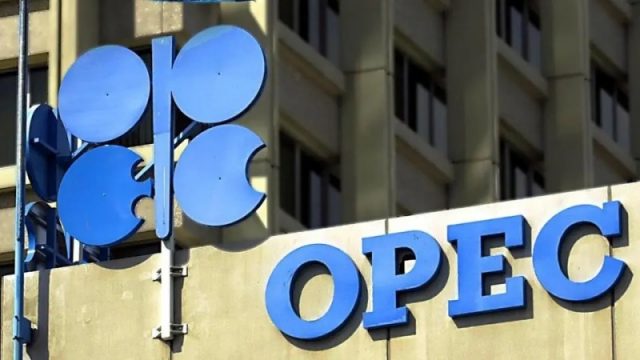SAT, 07 MAY, 2022-theGBJournal | According to media reports, the US Senate Judiciary Committee on Thursday (5th May 2022) approved the passage of a bill – No Oil Producing and Exporting Cartels (NOPEC) Act – that could open the Organisation of Petroleum Exporting Countries (OPEC) to antitrust lawsuits over collusion to raise global crude oil prices. This is coming after versions of the bill have failed in Congress for more than two decades.
As of the time of writing, the White House has not indicated whether President Joe Biden supports the bill or if the bill can garner enough support to scale through deliberations in both houses of the US Congress. However, it is unclear how a US Federal court could enforce judicial antitrust decisions against a foreign nation.
On the surface, the NOPEC act is aimed at protecting US consumers and businesses from the surge in gasoline and heating oil costs and the spillover effects on inflation. Notwithstanding, we view this as the US’ latest “anti-OPEC” action, coming after the US championed the release of strategic reserves to influence crude oil prices in the latter part of 2021 and early in 2022.
The renewed clamour for the bill is coming off the heels of repeated calls to the cartel (and its allies) to raise production beyond the 400kb/d phased increases scheduled for 2022, given the effects of the elevated gasoline prices on inflation.
Non-OPEC members like Russia, who are part of the OPEC+ coalition, may also be included in the potential lawsuits against the cartel.
OPEC Retaliation Action Inevitable
We believe Saudi Arabia, the biggest opposer to the ‘NOPEC’ bill since its initial conception decades ago, will champion OPEC’s kickback. In previous instances where the bill was debated, Saudi Arabia hired lobbyists to influence the non- passage of the bill. In 2019, the kingdom threatened to sell its oil in currencies other than the dollar, which would undermine the US dollar’s status as the world’s primary reserve currency, diminish US influence on global trade and weaken the efficacy of its sanctions. There is a possibility that Saudi Arabia could consider the aforementioned policy action.
For the overall cartel and its allies, we believe cutting off shipments to the US in retaliation will most likely be its first call of action. Other retaliative measures include selling crude oil to the US at a premium above market prices, a reduction in weapon purchases from US contractors, or even limiting US investments in their respective countries.
Possible Implications
Increased short term price volatility: We expect increased price volatility in the short term as the market awaits clarity on (1) if the US President would give his assent to the bill or veto it and (2) how OPEC members would react based on the development. That said, OPEC members could admit that the cartel no longer has spare capacity, pushing oil prices higher in the short term. Besides, OPEC members not meeting their monthly quota despite maintaining steady output increases suggests that some members are battling with country-specific challenges amid post-COVID-19 complexities on production. For instance, Libya’s key infrastructure blockade reduces global supply by about 550.00kb/d, whilst terminal shut-ins and under-investments in Nigeria and Angola have kept production below pre-pandemic levels.
Domestic energy companies could face increased risks:
Given that OPEC members produce crude oil cheaper than the US, a NOPEC bill could hurt US oil companies if OPEC decides to toe the line of flooding the market with cheaper oil. It may be difficult for US producers to sell their oil amid high production costs in such a situation.
Reduction in the US dollar share of global gross FX reserves:
As stated earlier, Saudi Arabia’s threat to sell crude oil in other currencies asides from the US dollar if the bill is signed into law could undermine the US dollar’s status as the world’s primary reserve currency. We believe this would further compound concerns of international transaction settlements from China and Russia. According to the IMF’s Currency Composition of Official Foreign Exchange Reserves (COFER) survey, the share of US dollar reserves held by central banks declined to 58.8% as of Q4-21 – the lowest since 1999 (71.0%). The preceding indicates that central banks have been shifting gradually away from the US dollar.
Increased inflationary pressures:
If OPEC members decide to limit their crude oil shipments to the US or increase the prices of crude oil sold to the US as retaliation to the NOPEC bill, gasoline and heating fuel prices could increase higher than current levels in the US, undermining the bill’s aim and further stoking domestic inflationary pressures.
Summarily, we believe the US’ best option for tackling and disrupting OPEC and its allies’ hold on prices is to significantly ramp up its outputs, especially now when prices are at a level conducive for increased investments in production. However, US oil companies sustained focus on paying off debts and delivering returns to shareholders has limited the pace of increased investments in drilling new oil wells.
As of April 2022, data from the Energy Information Administration (EIA) showed a 3.1% increase in US average daily domestic production to 11.52mb/d, still short of the pre-pandemic level (12.29mb/d) by c. 6.0%. US oil rig count (as of 29th April) is up by 15.0% to 552, 18.5% shy of the pre-pandemic level (677).-Analysis powered by Cordros Research
Twitter-@theGBJournal|Facebook-The Government and Business Journal|email: gbj@govbusinessjournal.ng|govandbusinessj@gmail.com










